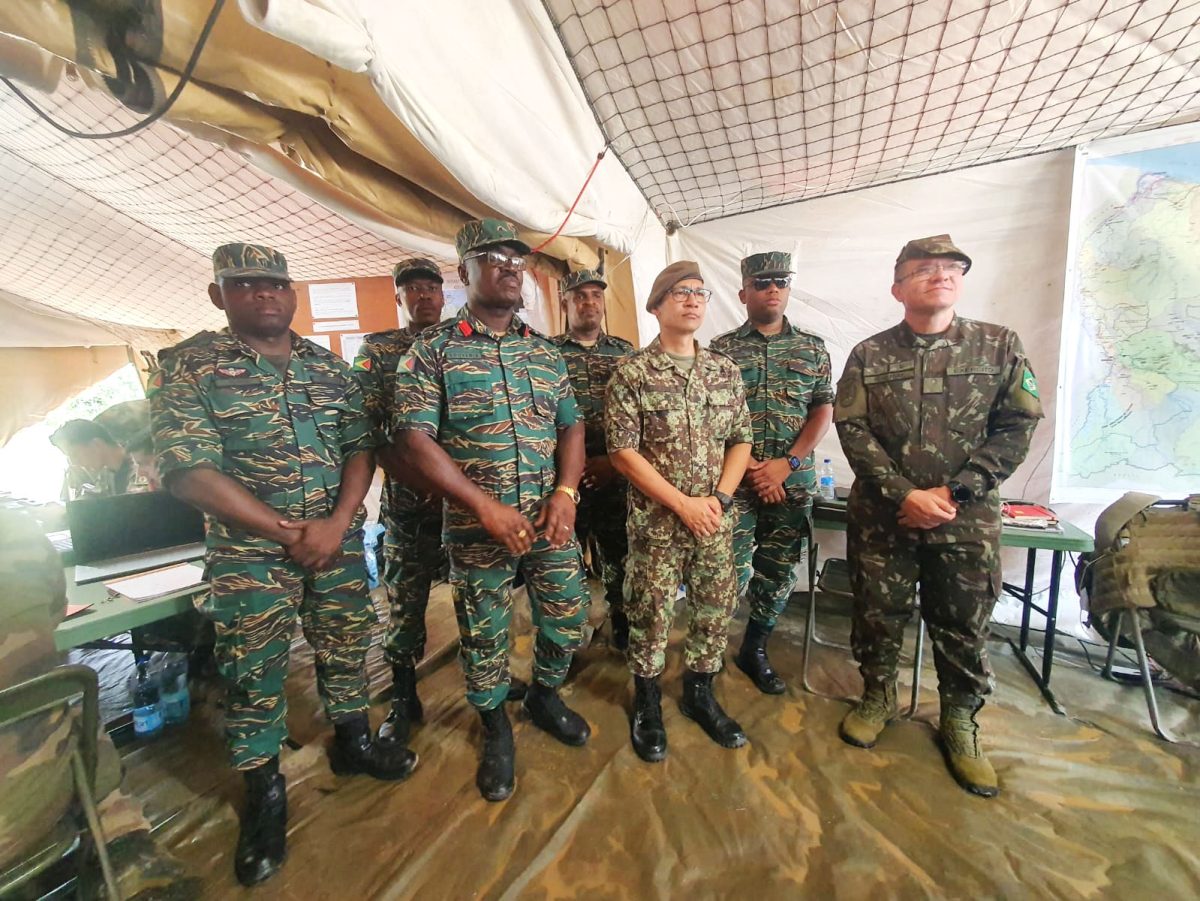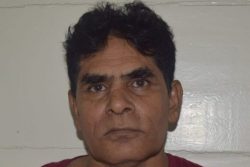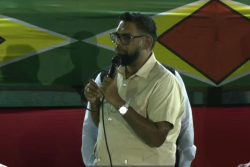The two-week Fer de Lance joint military interoperability cooperation exercise, conducted with partners across the Guiana Shield, concluded yesterday, with Guyana Defence Force (GDF) officials stating that the army is now better equipped to respond to natural disasters and mass movement of migrants.
“This is an exercise that is based on scenarios of mass relocation or handling refugees… and is quite applicable to Guyana. We experience floods on the coastline, we have experienced wildfires in the Rupununi, and those are just two events stemming from natural disasters…. So, with the lessons learned from this mission, we are better able to operate with partner nations [should this occur],” Colonel Lloyd Souvenir of the GDF informed Stabroek News from the French military airbase in Cayenne yesterday.
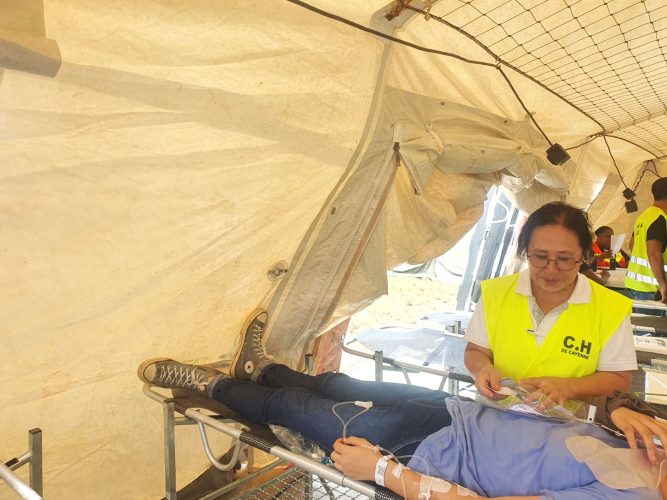
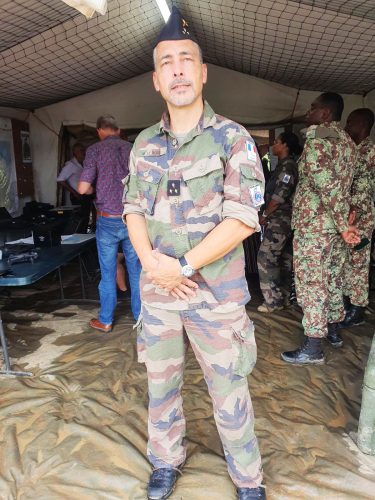
“…One of the big takeaways is that we can operate with partner nations across the Guiana Shield,” he added.
Colonel Souvenir was one of three VIP officers from the GDF who yesterday observed simulation exercises that formed part of the culmination activities of Fer de Lance 2025. Guyana sent 29 participants from the GDF, along with three officers and two members of the coast guard.
French army personnel explained that the gruelling two-week exercise saw Guyana’s contingent deployed to various areas where a total of 700 servicemen from France, Suriname, and Brazil, were spread out.
The joint exercise with sister territories on the Guiana Shield saw skills training put into action through the simulation exercise yesterday. Over the exercise period, the servicemen were trained to tackle multiple scenarios, ranging from natural disasters and security crises to high-intensity engagements.
The scenario played out yesterday related to AZUR [fictional country] armed forces directed to perform a national evacuation on CASPIE [fictional country] territory and support that country’s armed forces who are opposing a militia engaged in destabilisation efforts in a country called BOREAL. AZUR armed forces were also tasked with supporting their country’s law enforcement in monitoring its borders.
The mission was carried out while simultaneously performing under state sovereignty and upholding natural resources protection. Some 150 students were also trained to assist in the simulation exercises, with French army officials explaining that this aspect also taps into building relationships with civilians.
French Army General Marc de Bouil, underscored the importance of training and being prepared to act at any time, as crises and emergencies give no warning.
“In times of crisis—whether natural disasters, health emergencies, or security threats—our fellow citizens can often feel overwhelmed by the situation unfolding around them. It is in these critical moments that the armed forces must be ready to act. To achieve this, we must be trained to operate in the most challenging circumstances, even when everything else ceases to function. This level of preparedness does not happen without rigorous training,” he told yesterday’s attendees.
“As military personnel, regardless of our country, we are expected to be ready when the time comes. That is what our citizens demand of us. Similarly, those responsible for managing public finances defend their budgets with precision and determination, ensuring that resources are allocated effectively. This is why we chose a symbol that reflects the strategic importance of this region—French Guiana—situated between France, Brazil, and Suriname. It represents shared challenges and threats that transcend borders. The framework for this exercise was international, as you are aware, but it was also rooted in tradition,” he added.
General de Bouil stated that collaboration with the stakeholders was an essential part of the initiative, touching on many themes.
Guyana’s Colonel Souvenir echoed similar sentiments, saying that armed forces must be ready for any situation and that Guyana is grateful for its partners and their collaborative efforts in protecting their respective citizens, defending their territory, and safeguarding national interests.
